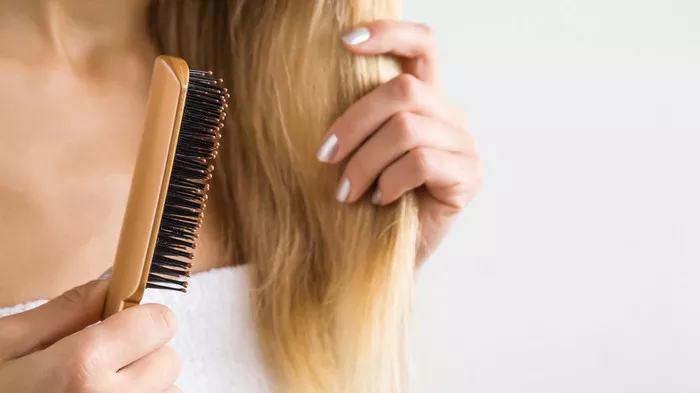Hair loss is a common concern that affects millions of people worldwide. Whether due to genetics, hormonal changes, nutritional deficiencies, or environmental factors, the quest for effective solutions is ongoing. One avenue that has gained attention is the potential role of multivitamins in preventing or slowing down hair loss. In this article, we delve into the science behind this concept and explore whether multivitamins can truly be a game-changer in the battle against hair loss.
Understanding the Complex Causes of Hair Loss
Before we explore the potential benefits of multivitamins, it’s essential to comprehend the multifaceted nature of hair loss. Numerous factors contribute to this condition, including genetics, hormonal imbalances, age, stress, and nutritional deficiencies. While multivitamins may address the latter, it’s crucial to recognize that they are not a one-size-fits-all solution.
The Role of Nutrients in Hair Health
Hair, being a non-essential tissue, is often one of the first areas affected when the body experiences nutritional deficiencies. Various vitamins and minerals play a vital role in maintaining the health of hair follicles. These include vitamin A, vitamin E, vitamin D, biotin, iron, zinc, and omega-3 fatty acids. Deficiencies in these nutrients have been linked to hair thinning and loss.
The Potential Impact of Multivitamins on Hair Loss
Multivitamins, as the name suggests, are supplements that contain a combination of vitamins and minerals. Advocates argue that by providing a comprehensive array of nutrients, multivitamins can help address potential deficiencies and support overall health, potentially impacting hair loss.
Vitamin A and E: Antioxidant Defense
Vitamin A and E are known for their antioxidant properties. Antioxidants help protect hair follicles from oxidative stress caused by free radicals. Free radicals can damage cells, including those in the scalp and hair follicles, potentially contributing to hair loss. Including these vitamins in a multivitamin regimen may offer a defense mechanism against such damage.
Biotin: The Hair and Nail Vitamin
Biotin, also known as vitamin B7, is often touted as the “hair and nail vitamin.” It plays a crucial role in the production of keratin, a protein that forms the foundation of hair. While biotin deficiency is rare, some studies suggest that supplementing with biotin can improve hair health, especially in individuals with low biotin levels.
Iron and Zinc: Building Blocks for Hair Growth
Iron and zinc are essential minerals for hair growth. Iron is involved in the production of hemoglobin, which carries oxygen to the hair follicles. Zinc, on the other hand, plays a role in the hair growth cycle and is involved in maintaining the health of the oil glands around hair follicles. Including these minerals in a multivitamin may be beneficial for individuals with deficiencies.
Omega-3 Fatty Acids: Nourishing from Within
Omega-3 fatty acids, found in fish oil, flaxseeds, and walnuts, are known for their anti-inflammatory properties. Inflammation can contribute to hair loss, and incorporating omega-3 fatty acids into the diet or through multivitamin supplements may help mitigate this risk.
Caution and Consultation: Not a Panacea
While the potential benefits of multivitamins for hair health are intriguing, it’s essential to approach them with caution. Hair loss is a complex issue, and its root causes vary from person to person. Before incorporating any supplements into one’s routine, consulting with a healthcare professional is crucial. Excessive intake of certain vitamins and minerals can have adverse effects and may even exacerbate hair loss in some cases.
See Also: Will Hair Grow Back After Chemotherapy: A Full Guide
Conclusion: A Holistic Approach to Hair Health
In conclusion, while multivitamins may play a supportive role in maintaining overall health and addressing nutritional deficiencies, they are not a guaranteed solution for hair loss. A holistic approach that considers various factors, including genetics, hormonal balance, and lifestyle, is necessary. Before embarking on a supplement regimen, seeking guidance from a healthcare professional ensures that the chosen approach is tailored to individual needs. Ultimately, the quest for healthy hair involves a combination of good nutrition, stress management, and personalized care.


